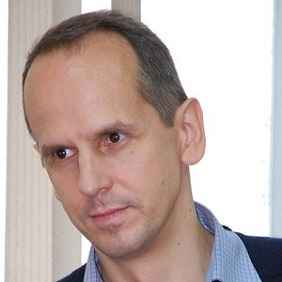Fractional Calculus and Fractional Dynamics
A special issue of Entropy (ISSN 1099-4300). This special issue belongs to the section "Complexity".
Deadline for manuscript submissions: closed (30 November 2023) | Viewed by 2954
Special Issue Editor
Interests: fractional calculus; fractional dynamics; mathematical economics; quantum theory; theoretical physics; processes with memory
Special Issues, Collections and Topics in MDPI journals
Special Issue Information
Dear Colleagues,
Fractional calculus is a theory of differential and integral operators of arbitrary (integer and non-integer) orders that form a calculus, in which fractional generalizations of fundamental theorems are satisfied. Fractional derivatives and integrals of non-integer order are powerful mathematical tools used to describe complex processes with spatial non-locality, long memory, distributed lag, fractional spatial and frequency dispersion.
Fractional dynamics is an interdisciplinary science, in which processes with non-locality and memory are described by using fractional calculus. In the framework of fractional dynamics, complex physical, chemical, biological and social economic systems are studied using fractional calculus.
This Special Issue of the journal Entropy (MDPI) invites works on the use of rigorous and proven mathematical results of fractional calculus to describe different types of complex processes and systems. In this Special Issue of Entropy, works should be focused on problems of fractional calculus and its applications. Works devoted to the development and application of general fractional calculus, which is based on general fractional integrals and derivatives with Sonine kernels and its generalizations, are welcome.
Prof. Dr. Vasily E. Tarasov
Guest Editor
Manuscript Submission Information
Manuscripts should be submitted online at www.mdpi.com by registering and logging in to this website. Once you are registered, click here to go to the submission form. Manuscripts can be submitted until the deadline. All submissions that pass pre-check are peer-reviewed. Accepted papers will be published continuously in the journal (as soon as accepted) and will be listed together on the special issue website. Research articles, review articles as well as short communications are invited. For planned papers, a title and short abstract (about 100 words) can be sent to the Editorial Office for announcement on this website.
Submitted manuscripts should not have been published previously, nor be under consideration for publication elsewhere (except conference proceedings papers). All manuscripts are thoroughly refereed through a single-blind peer-review process. A guide for authors and other relevant information for submission of manuscripts is available on the Instructions for Authors page. Entropy is an international peer-reviewed open access monthly journal published by MDPI.
Please visit the Instructions for Authors page before submitting a manuscript. The Article Processing Charge (APC) for publication in this open access journal is 2600 CHF (Swiss Francs). Submitted papers should be well formatted and use good English. Authors may use MDPI's English editing service prior to publication or during author revisions.
Keywords
- fractional calculus
- general fractional calculus
- fractional derivatives
- fractional integrals
- fractional differential equations
- fractional integral equations
- fractional dynamics
- spatial non-locality
- long memory






